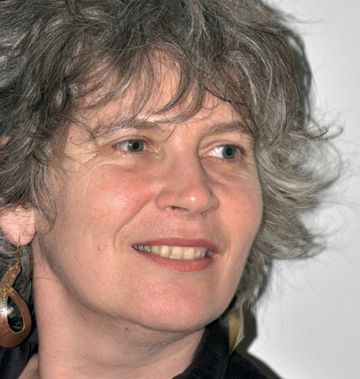Opening up a world of language

What started out in the 1980s as a one man band relying on the help of a few freelancers has blossomed into an organization employing almost 100 teaching, translation and administrative staff. Today, the centre teaches courses in more than 25 languages as well as running its own successful translation department.
What does the Language Centre do?
Our Language Centre, although officially part of the Faculty of Arts, offers services to the whole university and even outside the institution, to regional companies. We provide language courses in a variety of languages, a translation and correction service, and tests and assessments. Recently we set up our own Language Centre English Test (LCET) for (prospective) students and researchers who need to take a language test for a grant, scholarship application, degree, research or work experience abroad.
Clients can choose between open group and individual language courses, but should they prefer a programme that is tailor-made for their own section, department or student union, we can arrange that as well. For example, we have trained student associations that were planning a trip abroad. Our courses are not only accessible to university students and staff, but also to companies and people from outside the university.
Preparing for a stay abroad or improving your English so that you can interact more smoothly in an international environment such as our university, does however involve more skills than just language proficiency. That is why the Language Centre has set up courses in international communication, where you can learn how cultural differences can affect communication and how to become aware of that.
So the Language Centre offers a large variety of courses, from English and Dutch to Swahili and Portuguese, but which of these would you say are most important to (prospective) international students?
First of all, students from abroad might want to learn Dutch, which is offered on several levels. If you only want to learn some basic Dutch, then our short course ‘social Dutch’ might be something for you. German students can follow a special course that prepares them in three or four weeks for the official exam in Dutch as a second language (NT2 exam), needed to access a Dutch-taught study programme. Or, if you’re enrolled already in an English-taught degree programme and feel the need to polish up your English, just come to the Language Centre and we will help you. What’s more -and you might not have thought of this in the first place- following a course allows you to make contact with many other international students and staff. It’s a perfect opportunity to get to know people who are more or less in the same situation.
The Language Centre was founded 20 years ago. Have you seen many changes over the years?
Well, yes I have. What has struck me most is the explosive growth in the demand for language courses, mainly in English, but also in Dutch, Spanish and German. This has to do with increasing internationalization. Not only students but also university staff need training in English. Professors, managers, secretaries and porters, everyone needs to be able to communicate in English.
It is commonly agreed that learning languages is crucial, but what is your personal opinion about the relevance of mastering more than one language?
Languages have always broadened horizons, and offer new perspectives. Moreover, a language is not just a set of words organized by a grammar system. It involves so much more. Languages contain culture, history and perspectives. Now that the world has become even smaller because of social media, you just can’t do without your mother tongue ánd English at least. Mastering a third language is even better, and people knowing 4 languages are really interesting. Languages help you to move on.
It is obvious that you like your job as a Director of the Language Centre, but what makes it so much fun?
The Language Centre is an international environment in itself with 37 permanent and 60 stand-by staff members, coming from all over the world. I’m dealing with cultural differences on a daily basis, which makes this job very interesting. Furthermore, this is a very dynamic job. It’s about policy, money, practical matters, internal politics and much more. No two minutes are alike. As they say, there’s never a dull moment!
How did you end up in this position?
(Laughing:) I simply applied and got the job! I studied Dutch, with specialization Dutch as a second language. After graduation I taught Dutch, developed teaching methods, and worked as a project officer. At one point I was seconded to the Netherlands Institute for Curriculum Development (SLO), and this is where my career in educational methods really started. After that, I organized many projects for a consultancy and in the end, I had the perfect training and work experience for this position, which I have enjoyed since 2004.
Any goals for the future?
Well, actually we have just experienced a fast growth and have designed a number of new courses and facilities, such as our own English test, English subtitling for videos, and an editing service for Dutch texts, to name just a few. We have received the so called Cedeo quality label, and we actively take part in projects of the Federation of Language Centres in Europe (Cercles). Now it’s time to consolidate and see how everything works out. After that we will make plans for our next move.
What would you like to say to the readers of this newsletter?
I would like to encourage you to learn languages. Languages offer perspectives. The more languages, the more perspectives you have.
